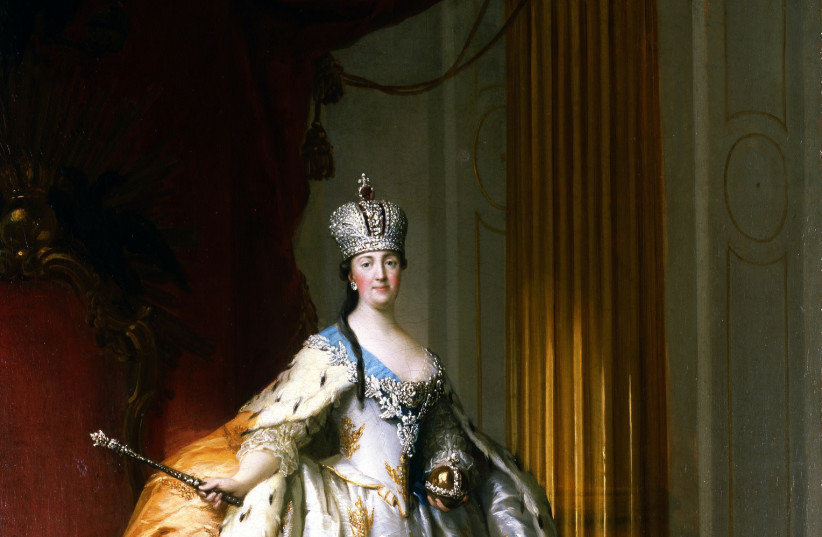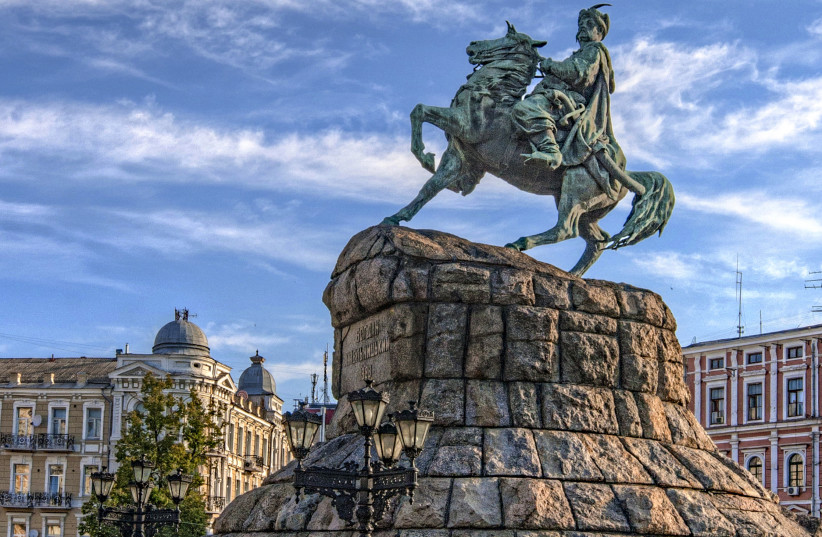 On This Day: Jews allowed to live in Kyiv 221 years ago by tsar’s orders
On This Day: Jews allowed to live in Kyiv 221 years ago by tsar’s orders
AARON REICH
The resettling of Jews in Kyiv marked the rebirth of the city’s historic Jewish community, which would become one of the biggest in Ukraine.
.

June 23, 1794 marks 229 years since Tsar Catherine the Great of Russia allowed Jews to resettle in the city of Kyiv, then known as Kiev, in what is now Ukraine.
The resettling of Jews in Kyiv marked the rebirth of the city’s historic Jewish community, which would become one of the biggest in Ukraine.
The city’s Jewish population would swell to well over 200,000 until it was dramatically slashed during the Holocaust.
The history of the Jews in Kyiv
Jewish history in Kyiv is heavily tied to the city itself, with an early 10th-century Hebrew-language letter sent either by or to the Jewish community being the oldest recorded usage of the city’s name in history.
Later historic accounts have corroborated the presence of a Jewish community in the city, though its population would fluctuate over the years as control over the city changed hands, culminating with the brutal slaughter of the community during the Khmelnytsky Uprising.

Fortune for the Jews began to change in the late 1700s. At the time, Jews were allowed to live in Poland, but Poland was soon partitioned, first in 1772 and again in 1793, which saw huge swathes of territory taken by Russia – and with it, all the Jews who lived there.
In response, Tsar Catherine the Great decided to grant Jews more freedom of movement and residence, though still confining them to a specific area, which became known as the Pale of Settlement. This allowed for more rapid settlement of Russia’s newly conquered lands.
But not all of the large cities in the Pale were welcoming to Jews, with Kyiv being one of them.
But on June 23, 1794, that changed. Here, the tsar signed a decree expanding the Pale and therefore rights of Jewish residency to Kyiv, Minsk, Podolia, and numerous other provinces. Finally, Jews were allowed to resettle in the city.
Barring a brief expulsion some 40 years later, the Jewish community in Kyiv was entrenched and continued to grow.
Tragedy would strike the community, however, such as brutal pogroms following the assassination of Tsar Alexander II, for which some blamed the Jews, as well as some pogroms after the end of World War I. However, its population would still flourish, up until it was devastated during the Holocaust.
Today, Kyiv still has a Jewish community, with it having grown after Ukraine achieved independence after the collapse of the Soviet Union.
Prior to the Russian invasion of Ukraine, the city was home to some 40,000 Jews.
Zawartość publikowanych artykułów i materiałów nie reprezentuje poglądów ani opinii Reunion’68,
ani też webmastera Blogu Reunion’68, chyba ze jest to wyraźnie zaznaczone.
Twoje uwagi, linki, własne artykuły lub wiadomości prześlij na adres:
webmaster@reunion68.com
